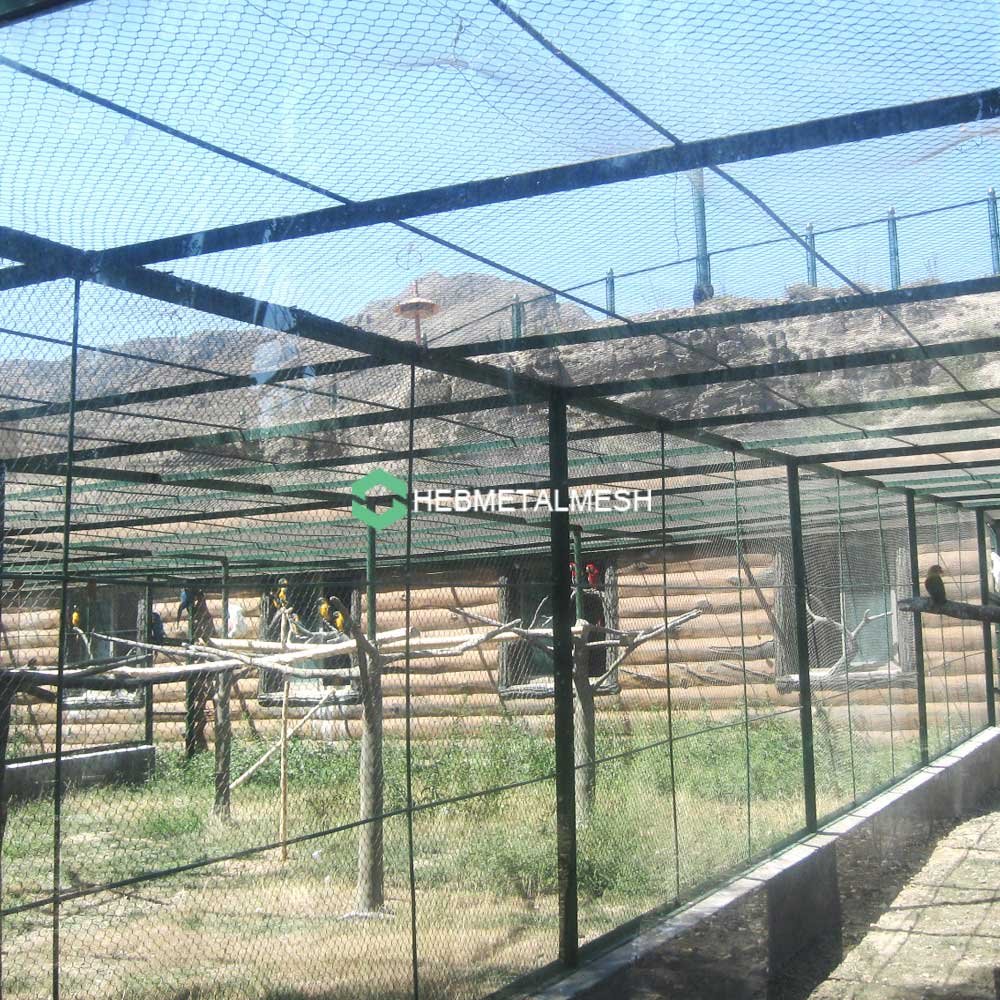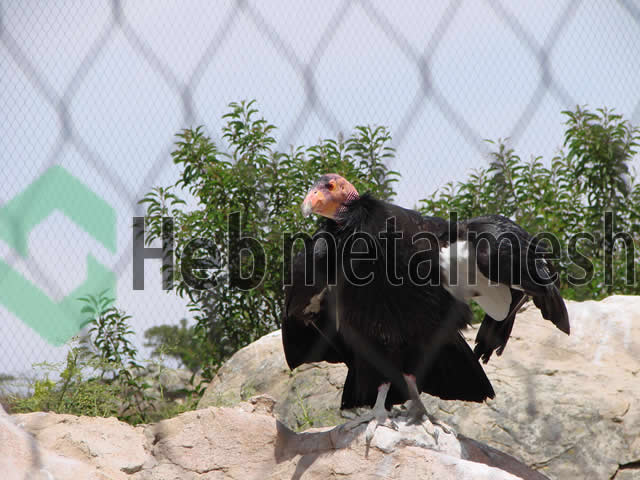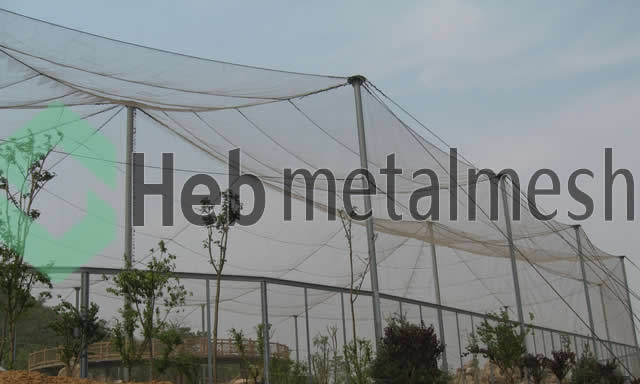Introduction to Aviaries for Small Birds
Aviaries for small birds serve as specialized enclosures that provide a safe and spacious environment for various species. Unlike conventional cages, which may restrict movement and natural behaviors, aviaries are designed to allow birds ample space to fly, perch, and socialize. This freedom is essential for the physical and psychological well-being of small birds, promoting healthy habits that are critical to their overall happiness.
The advantages of constructing aviaries for small birds are manifold. In addition to providing a controlled environment that shelters birds from predators and harsh weather, they also offer an opportunity for owners to enjoy the aesthetic beauty of avian life in their own backyards. An aviary can house multiple small bird species, encouraging natural social interactions and breeding behaviors that would not be possible in smaller, more confining spaces.
Furthermore, a well-designed aviary enhances the quality of life for birds. The inclusion of various perches, toys, and enrichment activities caters to the instinctual needs of avian life. These structures encourage exercise and exploration, crucial components for maintaining a balanced diet and preventing health issues. In an aviary, small birds can engage in activities like climbing, flying, and browsing, which mimic their natural habitat, enabling them to thrive in a safe, stimulating environment.
For bird enthusiasts, creating an aviary for small birds can be a rewarding experience that fosters a deeper connection with their avian companions. Thoughtful design and consideration of species-specific needs will ensure that these birds not only survive but flourish in a setting that mirrors their wild origins. The commitment to their welfare defines the essence of providing aviaries that resonate with the health and happiness of small birds.
Why Choose Stainless Steel Netting for Aviaries?
When designing an aviary for small birds, the choice of materials is a critical factor that can significantly impact the well-being of the birds housed within. Stainless steel netting stands out as a superior option due to its numerous advantages. One of the most compelling reasons to select stainless steel is its exceptional durability. Unlike traditional wire fencing or plastic materials, stainless steel is resistant to rust and corrosion, which makes it ideal for outdoor environments. This long-lasting characteristic ensures that the aviary maintains its integrity over time, providing a safe space for the birds.
In addition to its durability, stainless steel netting offers resistance to various weather elements. Whether facing intense sunlight, heavy rain, or frost, this material endures without degrading or losing its structural properties. This weather resistance reduces the need for frequent replacements, thereby lowering the overall maintenance costs associated with aviary upkeep.
Another noteworthy benefit of using stainless steel netting is its low maintenance requirement. Unlike plastics that can become brittle and break under stress or wire that may need regular inspections for wear and tear, stainless steel remains stable and secure with minimal care. Cleaning stainless steel is also straightforward, allowing for easy hygiene management within the aviary, which is essential for preventing disease among the birds.
Finally, safety is paramount when constructing an aviary for small birds. Stainless steel netting provides a robust barrier that minimizes the risk of escapes or attacks by predators. Its strong structure ensures that birds remain safely confined while allowing for adequate airflow and visibility. This balance of security and comfort makes stainless steel netting a preferred choice among avian enthusiasts looking to create a thriving habitat for their pets.
Hebmetalmesh: Your Go-To Supplier for Aviary Netting
When it comes to creating a safe and comfortable environment for small birds, choosing the right aviary netting is crucial. Hebmetalmesh stands out as a premier supplier and manufacturer specializing in stainless steel netting tailored specifically for aviaries. With years of experience in the industry, Hebmetalmesh is committed to delivering high-quality products that cater to the diverse needs of bird enthusiasts and aviary builders alike.
Hebmetalmesh’s stainless steel netting is designed with both durability and aesthetic appeal in mind. Unlike traditional materials, the aviary netting produced by Hebmetalmesh is resistant to rust and corrosion, ensuring longevity even in challenging environmental conditions. This makes it an ideal choice for outdoor aviaries, where exposure to the elements can compromise the integrity of lesser materials. Furthermore, the robust construction of their netting provides an effective barrier against predators while allowing birds to enjoy an unobstructed view of their surroundings.
In addition to its resilience, the netting offered by Hebmetalmesh is specifically tailored to suit the needs of small birds. The openings in the mesh are uniformly sized to prevent escape while ensuring adequate ventilation, promoting a healthy living environment. Bird owners can take peace of mind knowing that their feathered companions are secure within a well-designed aviary, fashioned with the expertise and precision that Hebmetalmesh embodies.
Overall, Hebmetalmesh’s dedication to quality and innovation sets it apart as a trusted name in aviary netting. Whether you are constructing a new aviary for small birds or upgrading an existing one, their products provide a reliable foundation for creating a safe and enjoyable habitat for your avian friends. With Hebmetalmesh, you can trust that your aviary will not only meet the needs of your small birds but will also stand the test of time.
Understanding the Flexible Handwoven Stainless Steel Netting
Flexible handwoven stainless steel netting is a versatile material that plays a crucial role in the construction of aviaries for small birds. Its unique properties make it an excellent option for aviculture enthusiasts who seek durable and customizable solutions for housing their avian companions. One of the standout features of this netting is its exceptional flexibility, which allows for easy installation across a variety of aviary designs and layouts. This adaptability is essential when creating environments that cater to the specific needs of different small bird species.
The handwoven technique employed in crafting this stainless steel netting results in a robust product that retains its shape and strength while offering an appealing aesthetic. Moreover, the interwoven structure ensures that the netting is resistant to wear and tear often associated with outdoor elements, such as wind, rain, and UV exposure. The longevity of this material contributes to the safety and well-being of the birds housed within the aviary. Additionally, the stainless steel composition makes it resistant to corrosion, further enhancing its durability.
Another benefit of flexible handwoven stainless steel netting is its ability to be customized according to specific aviary dimensions. Whether creating a large outdoor aviary or a smaller indoor setup, this netting can easily bend and conform to irregular shapes and sizes, ensuring complete enclosure and protection for small birds. Furthermore, the netting allows for excellent ventilation while providing visibility to the outside environment, which can positively affect the birds’ mental health by minimizing stress.
In conclusion, flexible handwoven stainless steel netting stands out as a premier choice for constructing aviaries for small birds, merging functionality with aesthetic appeal. Its flexibility, durability, and customization options make it a reliable solution for aviculture enthusiasts seeking to create safe and inviting habitats for their feathered friends.
1-Inch Small Mesh Aviary Netting
When it comes to creating a safe and conducive environment for small birds, the choice of netting is paramount. The 1-inch small mesh aviary netting provided by Hebmetalmesh offers an excellent balance between security and functionality. This specific size of mesh netting is designed to contain even the smallest species of birds while preventing the entry of larger predators, ensuring a safe habitat for your feathered companions.
One of the key advantages of using 1-inch mesh aviary netting is its ability to provide adequate visibility and airflow. The openings in the netting are sufficient to allow natural light to penetrate the aviary, creating a bright and inviting atmosphere for the birds. Moreover, this feature facilitates proper ventilation, which is essential for maintaining a healthy environment. Good airflow helps to prevent the buildup of moisture and heat, ensuring the wellbeing of the birds housed within the aviary.
Hebmetalmesh’s commitment to quality is evident in the construction of their aviary netting. The materials used are durable and weather-resistant, enabling the netting to withstand various environmental conditions, thereby extending its lifespan. The flexibility of the netting also allows for easy installation in various aviary designs, whether it be a simple enclosure or a more elaborate aviary system.
In addition to being secure and functional, the 1-inch small mesh aviary netting is also an aesthetically pleasing choice. The transparent nature of the netting does not impede the visual appeal of the aviary, allowing for an unobstructed view of the birds, which can be a source of joy for bird enthusiasts. Overall, choosing this netting solution is an effective means of ensuring the safety and comfort of small birds while enhancing the overall design of their living space.
Customizable Roll Sizes for Your Unique Aviary Needs
When constructing an aviary for small birds, one of the critical factors to consider is the size and configuration of the materials used. Hebmetalmesh offers the option for customizable roll sizes, which is pivotal for accommodating various aviary projects. This flexibility means that bird enthusiasts can select dimensions that best suit their specific needs, whether it is for a small indoor aviary or a larger outdoor installation.
Each bird species has unique requirements regarding space, safety, and environmental enrichment. For instance, finches may require a different aviary setup compared to canaries or budgerigars. Having customizable roll sizes allows for precise tailoring of the aviary’s design, ensuring that the birds have adequate room to fly, perch, and thrive. Additionally, it can help minimize waste, as aviary builders can order just the right amount of material needed for their projects without excess leftover netting.
Furthermore, customized roll sizes can enhance the structural integrity of the aviary. By selecting appropriate dimensions, builders can create a more stable environment while effectively protecting the birds from predators and environmental hazards. The versatility of Hebmetalmesh’s offerings means that whether a customer envisions a compact aviary for a single bird or a sprawling installation for a mixed-species habitat, they can find the perfect fit. This level of personalization not only underscores the importance of thoughtful planning in aviary construction but also highlights a commitment to creating safe environments for small birds.
By integrating flexible roll sizes into your aviary design, you ensure that your project meets specific biological and aesthetic requirements, supporting the well-being of the avian inhabitants.
Installation Tips for Stainless Steel Netting in Aviaries
When constructing aviaries for small birds, the installation of stainless steel netting is a critical step that enhances safety while allowing for adequate ventilation. This durable material is favored for its resistance to wear and tear, making it well-suited for an outdoor environment. Begin your installation process by gathering the necessary tools and materials; you will need a pair of wire cutters, a sturdy frame (wood or metal), stainless steel netting, U-nails, and a measuring tape. A helper can be beneficial for holding the netting in place during installation.
Start by measuring the dimensions of the aviary frame. Precision is essential; ensure that the netting will cover each side without excess material that could entangle the birds. After measuring, proceed to cut the stainless steel netting to size using wire cutters. Remember, when cutting the netting, wear gloves to prevent injury from sharp edges. Position the netting over the frame and allow it to drape slightly, as this will help in securing it tightly.
Using U-nails, begin attaching the netting to the frame at one corner. Make sure to pull the netting taut as you work your way along the edges—this reduces sagging and increases security. It is recommended to space the U-nails no more than twelve inches apart to ensure a secure fit. After securing the netting along all sides, trim any excess material carefully. Inspect the installed netting for any sharp points or gaps that may pose a risk to the birds.
By following these steps and maintaining attention to detail, the installation of stainless steel netting in aviaries will be successful, providing a safe environment for small birds to thrive. Ensuring the netting is perfectly secured will help keep aviary inhabitants both protected and comfortable.
Maintenance and Care of Your Aviary Netting
Maintaining the quality and functionality of aviary netting is critical for the health and well-being of small birds. Stainless steel netting, which is a popular choice for aviaries, offers exceptional durability and resistance to wear. However, to ensure that it remains in optimal condition, regular maintenance must be performed. This includes cleaning routines and periodic inspections to identify any potential issues that may arise.
Cleaning your aviary’s stainless steel netting is an essential aspect of its maintenance. It is recommended to clean the netting at least once a month or more frequently if the aviary is exposed to dirt, dust, or the droppings of the birds. A gentle solution of warm water mixed with a mild soap can be used along with a soft cloth or sponge to scrub away any buildup. Avoid using abrasive materials or harsh chemicals, as these can damage the protective coatings of the netting. Rinsing thoroughly with clean water will ensure that no residue remains, which can be harmful to the birds.
Inspection is another key component of aviary netting maintenance. Regularly check the stainless steel for signs of rust, fraying, or other forms of wear. It is important to examine the edges and seams, as these areas are often the first to show signs of deterioration. If any damage is detected, it is advisable to repair or replace the affected sections to maintain the safety of the aviary environment. Being proactive about maintenance will greatly enhance the longevity of the aviary for small birds and contribute to their overall well-being.
Finally, keeping a maintenance log can help aviary owners track cleaning schedules and inspection findings, ensuring that the aviary netting remains a safe and effective enclosure for your birds. Regular care ultimately not only protects your investment in the aviary itself but, most importantly, helps safeguard the health and happiness of the small birds residing within.
Conclusion: Creating a Safe Haven for Small Birds
Building an aviary for small birds involves careful consideration of materials and suppliers to ensure the safety and well-being of your feathered companions. A well-constructed aviary provides an enriching environment for small birds, allowing them to thrive in a space that caters to their physical and psychological needs. The choice of materials is particularly crucial, as it directly impacts the durability and safety of the habitat you create.
Hebmetalmesh offers a range of high-quality products designed specifically for aviaries, including flexible handwoven stainless steel netting. This unique material provides numerous benefits, such as resistance to corrosion and durability against various environmental factors. By integrating such materials into your aviary design, you can mitigate the risks of wear and tear, protecting the inhabitants from potential hazards. It is essential to ensure that the products you select are non-toxic and safe for small birds, as they are particularly sensitive to harmful substances.
Additionally, sourcing materials from reputable suppliers like Hebmetalmesh strengthens your project, as it guarantees that you are using products designed to meet industry standards. Remember that creating a safe haven for small birds goes beyond just constructing an enclosure; it also entails ensuring their access to fresh air, sunlight, and suitable perches. As you plan your aviary, consider the long-term implications of your material choices. Investing in high-quality materials not only enhances the safety of your small birds but also contributes to the longevity of the aviary itself.
In conclusion, choosing the right materials is essential for creating a secure and stimulating environment for small birds. By utilizing products such as those offered by Hebmetalmesh, you can provide a nurturing habitat that allows your feathered friends to flourish.


